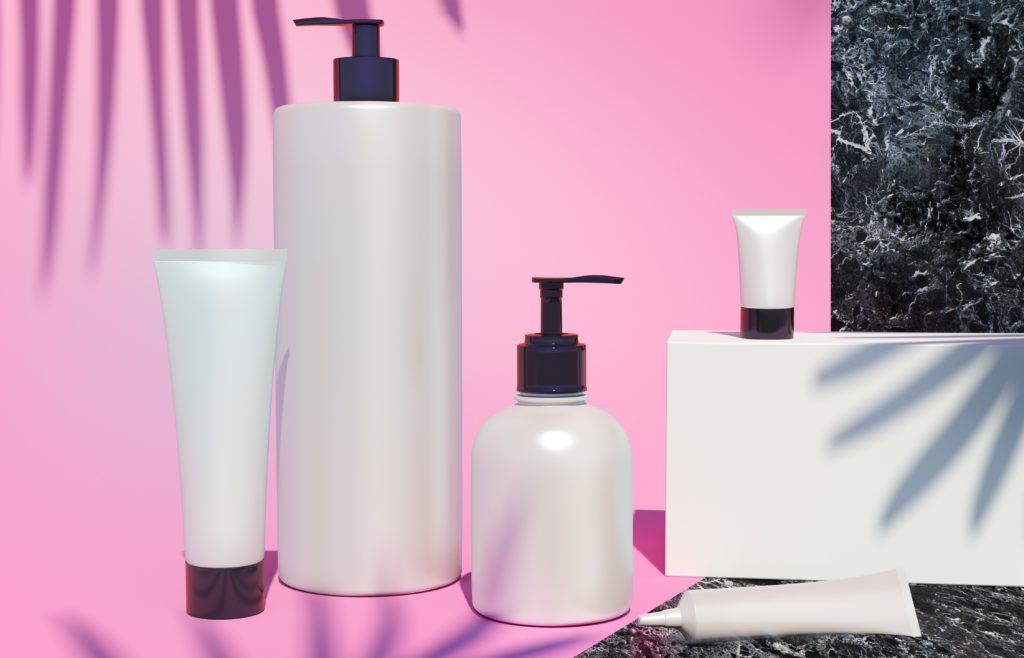FDA Import Requirements
Import Requirements for FDA Regulated Products
FDA Import Requirement
All products regulated by the Food and Drug Administration (FDA) must meet the same requirements, whether imported from abroad or produced domestically.
The first step in any importation process begins with U.S. Customs and Border Protection (CBP). You must comply with CBP rules, requirements, and processes. All products offered for entry into the United States, including items for personal use, must be declared to CBP. CBP refers all formal and informal entries of all FDA-regulated products to the FDA for review.
The FDA determines whether products are admissible into U.S. commerce and may refuse entry to any that violate or appear to violate any provisions of the Federal Food, Drug, and Cosmetic Act (FD&C Act).
All FDA-regulated products are electronically screened before they enter the U.S. Specific information must be provided to FDA when submitting an entry, which may include documentation. Failure to submit this information may delay the review of your entry. The importer is responsible for making sure the imported products comply with all U.S. requirements. Products that do not comply with U.S. requirements at the time of importation are subject to refusal of admission. FDA has jurisdiction over imported products at the time of entry but also after the products have entered domestic commerce.
Importing FDA-Regulated Products: The Import Process
In-Depth Coverage: Country of Origin
- Country of Origin of Imported Merchandise
- Customs Ruling: Country of Origin
- Country of Origin: Food Products
- Country of Origin: Chemical and Pharmaceutical Products
- Country of Origin & Country of Manufacture: CBP vs. FDA
- Country of Origin: Substantial Transformation or Country of Assembly Test
- Country of Origin and Free Trade Agreement
- Country of Origin and Section 301
FDA-Regulated Products
The FDA regulates a wide range of products, including foods (except for aspects of some meat, poultry, and egg products, which are regulated by the US Department of Agriculture); human and veterinary drugs; vaccines and other biological products; medical devices intended for human use; radiation-emitting electronic products; cosmetics; dietary supplements, and tobacco products. Each FDA-regulated commodity is subject to specific regulations, which you should be aware of when importing products into the United States.
Human Foods
Foods for human consumption, including dietary supplements, and color additives
Human Drugs
Active pharmaceutical ingredients and both prescription and over-the-counter medications
Vaccines, Blood and Biologics
Biologic products such as human blood, blood donor screening tests, human tissue, embryos, human plasma, and medical devices for use in blood banking operations
In-Depth Coverage: Medical Device Import Requirements
Medical Devices
Medical devices such as first aid kits, pacemakers, and surgical instruments
Radiation-Emitting Electronic Products
Radiation-emitting products such as x-ray machines, microwave ovens, CD-ROMs, and laser pointers
Cosmetics
Cosmetic products such as shampoo, make-up, and face creams
Animal and Veterinary
Animal food and feed as well as veterinary medicines
Tobacco Products
FDA-regulated tobacco products such as cigarettes, smokeless tobacco, e-cigarettes, and other electronic nicotine delivery systems, cigars, and all other tobacco products
What Does FDA Regulate?
In-Depth Coverage: Marketing and Advertising Compliance
- Federal Trade Commission (FTC) Advertising Rules
- Made in USA Standard
- FTC Regulation on Environmental Claims
- Adverting and Marketing on the Internet
- Label Claims for Conventional Foods and Dietary Supplements
- Dietary Supplement Advertising: What is FTC's Truth-in-Advertising Law?
- USDA Country of Origin Labeling (COOL)
- FTC Rules & Regulations on Food Advertisement
Import Process: Entry Review
During the entry review process, the imported products must be held and may not be distributed into U.S. commerce until the FDA has determined their admissibility. FDA-regulated products are refused entry if they appear to be or have been found to be:
- adulterated, meaning the product is contaminated, is not safe, unapproved, or does not otherwise meet applicable standards,
- misbranded, meaning the labels contain false or misleading information, or the product is not registered and listed if required,
- forbidden or restricted for sale.
Products that do not comply with U.S. requirements may be refused admission. Refused products must be destroyed or exported from the United States within 90 days.
Common Entry Types
When importing your product, you must first determine the entry type to be filed with Customs and Border Protection (CBP). All entry types are created and defined by CBP.
According to Customs Regulations, entering imported merchandise is a two part process consisting of:
- Filing the documents necessary to determine whether merchandise may be released from CBP custody and;
- Filing the documents that contain information for duty assessment and statistical purposes.
Both of these processes can be accomplished electronically via the Automated Broker Interface (ABI) program of the Automated Commercial Environment (ACE).
In-Depth Coverage: Trade Remedies
What is a consumption entry?
A consumption entry is a type of entry used when products are imported for use in the United States and going directly into United States commerce without any restrictions of time or use placed on them, which covers about 95% of all entries.
“For use in the United States” means for commercial, business or personal purposes.
A consumption entry is the most common entry type for FDA-regulated products. Products may only be entered by their owner, purchaser, or a licensed customs broker. Once the shipment is presented for entry, it may be examined by a government agency.
Formal and informal entry
A consumption entry may be formal or informal depending on the circumstances.
However, the majority of consumption entries are formal and the goods that are being imported for commercial purpose and/or “resale”, which requires filing an Entry Summary (CBP 7501) and acquiring a CBP bond (CBP 301).
This covers a broad range of commodities (i.e. textiles, electronics, food, etc.) entering the U.S. For example, a commercial shipment of textiles being shipped from China to a distributor in the United States would be a formal consumption entry. However, if the textiles were going to a warehouse prior to the distributor, a formal warehouse entry would have to be filed.
In-Depth Coverage: Cosmetics Import Requirements
Consumption entries for goods entering the U.S. as informal entries are not necessarily filed on a CBP 7501. Various forms are used for informal consumption entries and usually, no CBP bond (CBP 301) is required.
Informal consumption entries generally cover shipments intended for the importers' personal use or commercial goods entering the U.S. via air, ship or mail for consumption that are valued at $2,500 or less. This does not include commodities subject to other federal agency regulations. For example, a shipment of furniture being shipped from Indonesia to a homeowner in the United States valued at $6,000 would most likely be an informal consumption entry because the goods are intended for their personal use.
In addition to consumption entries, other entry types are used to clear goods entering the United States. Some entry types include warehouse, transportation, temporary importation under bond (TIB), permanent exhibition, trade fair, carnets, drawback, foreign trade zone (FTZ), vessel repair, and appraisement of FTZ's entries.
Entry for Warehouse
If one wishes to postpone the release of the goods, they may be placed in a CBP bonded warehouse under a warehouse entry. The goods may remain in the bonded warehouse up to five years from the date of importation. At any time during that period, warehoused goods may be re-exported without paying duty, or they may be withdrawn for consumption upon paying duty at the duty rate in effect on the date of withdrawal. If the goods are destroyed under CBP supervision, no duty is payable.
Immediate Transportation (IT)
An IT entry allows bonded merchandise to arrive at a U.S. port, with another port in the U.S. as the final destination (the declared port of entry). The FDA makes its admissibility decision on the merchandise at the declared port of entry.
Transportation & Exportation (T&E)
A T&E entry allows goods to be transported through the CBP territory of the U.S. under bond and then exported intact. For FDA purposes, goods entered via T&E are not considered “imported or offered for import”; therefore they are not subject to an FDA admissibility review. If at any time the entry of the goods changes to a consumption-type entry, they will be subject to an FDA admissibility review.
In-Depth Coverage: Importing Food Products
- What is FDA Food Safety Modernization Act (FSMA)?
- Prior Notice of Imported Foods
- FDA Food Facility Registration
- Risk-Based Preventive Controls for Human Food
- Risk-Based Preventive Control for Animal Food
- Protect Food against Intentional Adulteration
- What is Foreign Supplier Verification Program (FSVP)?
- What is FSMA Produce Safety Rule?
Temporary Importation under Bond (TIB)
A TIB entry allows goods to be imported duty-free up to one year with a guarantee the goods will be exported or destroyed at the end of the bond period. The importer posts a bond for twice the amount of the duty. A TIB entry may be used when an article for repair is imported and will subsequently be exported. For FDA purposes, articles entered using a TIB entry type are considered “imported or offered for import” when they arrive; therefore they are subject to an FDA admissibility review when they arrive.
Foreign Trade Zone (FTZ)
An FTZ is an area set aside to hold or otherwise manipulate goods for an unlimited period of time. The FDA has jurisdiction over FDA-regulated pro-ducts in an FTZ and has inspectional authority over FDA-regulated processes conducted in an FTZ. For foods, the Prior Notice requirements should be met when brought into an FTZ. However, products brought into an FTZ are otherwise not considered “imported or offered for import.” Therefore they are not subject to an FDA admissibility review when entered into an FTZ. Instead, the FDA admissibility review occurs when the articles are withdrawn from the FTZ. If products in an FTZ are withdrawn for domestic consumption, an entry must be filed with CBP and the import process begins.
Quick Link To U.S. Customs & Import Requirements
FDA-Regulated Products and Import Requirements
- What is Food Safety Modernization Act (FSMA)?
- Prior Notice of Imported Foods
- Food Facility Registration
- Risk-Based Preventive Controls for Human Food
- Risk-Based Preventive Control for Animal Food
- Standards for the Growing, Harvesting, Packing, and Holding of Produce for Human Consumption
- What is Foreign Supplier Verification Program (FSVP)?
- Protect Food against Intentional Adulteration
- FDA Regulated Product in Foreign Trade Zone (FTZ)
- Entry Review Process for FDA Regulated Products
- Country of Origin VS Country of Manufacture
- Foods Regulated by FDA or USDA: What is the Difference?
- Label and Labeling Claims for Conventional Food and Dietary Supplements
- What is USDA Country of Origin Labeling (COOL)?
- Import for Export of FDA Regulated Products
- FDA Regulated Products in Personal Baggage or Sending by Mail or Courier
- International Mail Facility (IMF) and FDA Regulation
- Importing Biological Product Regulated by CBER
- Importing Cosmetics and Voluntary Cosmetic Registration Program (VCRP)
- Importing Drugs into the U.S.
- Importing OTC Drugs into the U.S.
- Importing Veterinary Drugs into the U.S.
- Importing Tobacco Products into the U.S.
- Importing Medical Devices into the U.S
- Importing Food Products into he U.S.
- Importing Radiation-Emitting Products into the U.S.
Guidance on customs & logistics solution for traditional and e-commerce importers and exporters
Freight Forwarding
Looking for a freight forwarding partner? To move your cargo from its current location through customs to its final destination we will partner with you to find the best way for your business. Whatever your transportation, logistics or customs clearance needs, we will do our best to customize a solution for your needs.
Customs Clearance
The goods imported into the U.S. are required to be declared to CBP. Our customs broker will help you stay in compliance with customs laws and regulations and clear your goods quickly and efficiently with our electronic Automated Commercial Environment (ACE) and Automated Broker Interface (ABI) Single Window System.
Warehousing & Distribution
Our warehouse facility offers great potential for serving as a regional hub with over 145,000 SF storage capacity close to Los Angeles Airport & Los Angeles/Long Beach Sea port. With our extensive experience in freight services, your import/export cargo will be handled quickly and effectively.
Non-resident Importer Program
If you want to sell your products in U.S. marketplaces, but you are a business owner located outside of the U.S. and do not have an entity or presence in the U.S., you need to be established as a Foreign Importer of Record before your products can be imported into the U.S. We can help you.
Section 321 Entry
Section 321 entry allows importing free of duty and tax for shipments imported by one person on one day having a fair retail value in the country of shipment not more than $800. We provide our resident and non-resident clients with dedicated ACE eManifest solutions for Section 321 entry of all modes of transportation.
E-Commerce
The Internet has made it easy to find and purchase items from almost anywhere in the world. Our e-commerce experts will help you find the right solution for your international transportation, customs clearance, and delivery to your final destination. We also provide value-added repackaging, warehousing and distribution services.


















